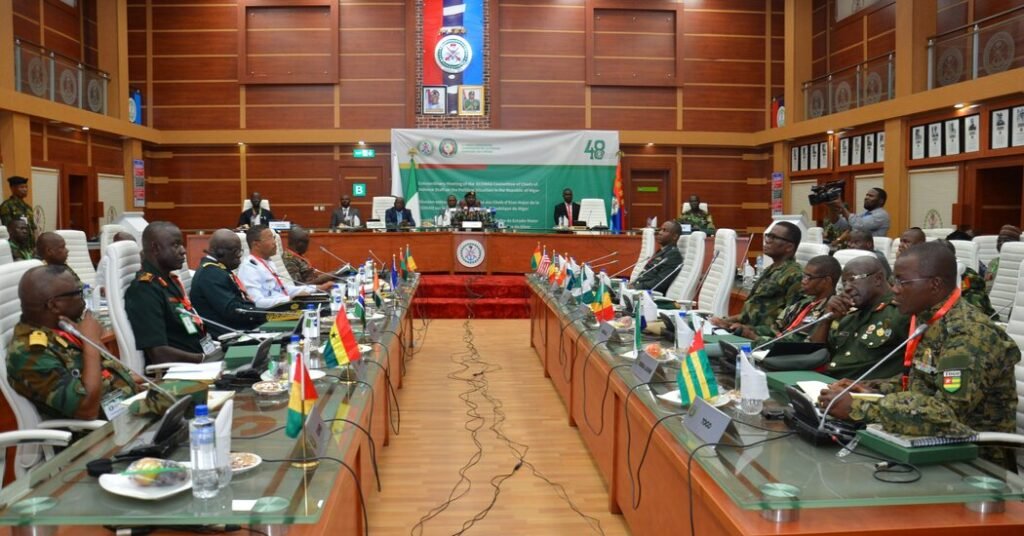Soldiers who seized power in three West African nations announced Sunday they would withdraw their countries from their regional economic bloc.
The military juntas in Mali, Niger and Burkina Faso have said they are leaving the Economic Community of West African States, or ECOWAS, over sanctions imposed by the group in response to coups.
In recent years, a series of coups have erupted in the Sahel, the arid strip south of the Sahara, forming an unbroken strip of military countries stretching from coast to coast across the continent.
While the regional bloc’s efforts to reverse some of these coups have failed, the sanctions it imposed — closing its borders and cutting the three landlocked countries off from major trading partners — have endured, causing severe hardship for millions of people.
On Sunday, the three juntas said those sanctions were “inhumane.”
ECOWAS closed land and air borders, imposed a no-fly zone for commercial flights, suspended financial transactions and froze countries’ assets in ECOWAS central banks.
In a statement, the junta accused the bloc of “betraying its founding principles” and said it “has become a threat to member states and their peoples.”
ECOWAS, they said, was acting “under the influence of foreign powers”, although they did not specify which powers. The bloc is seen as a tool of France, Britain and the United States by many West Africans, particularly those who spend time on social media.
The ECOWAS Commission said later on Sunday that it had yet to receive “any immediate official notification from the three member states of their intention to withdraw from the community”.
In a statement, she said she was “working diligently with these countries to restore constitutional order” and called the three nations important members of the community, adding that she remained “committed to finding a negotiated solution to the political impasse.” “
The bloc was established in 1975, soon after the independence of many West African countries from imperial rulers, with the aim of achieving economic integration among countries whose borders were drawn by colonial powers. Later, ECOWAS took up democracy, security and stability as additional priorities.
Leaving ECOWAS could have major consequences for citizens of the three countries, who were previously able to travel visa-free between the 15 member states that made up the bloc — which includes more than 300 million people and more than 1,000 languages.
West African commentators said the countries’ departure could have an impact trade relations and regional stability and they cause pain in the other direction as well, in the remaining 12 member states of the bloc. The decision should force ECOWAS and the African Union to “reflect on their utility, purpose and impact”. he said Ayisha Osori, a Nigerian lawyer and political activist, in a social media post.
The current wave of coups started with Mali, where the military arrested the president in 2020 and forced him to resign on state television. Since then, whenever a West African government has been toppled, the bloc has tried to topple it, sending diplomats to try to convince the coup plotters to hand over power or hold new elections. But the efforts often seemed innocent.
In July, after rebel generals seized power in Niger and held the president-elect hostage, ECOWAS threatened to deploy forces to topple the coup. But the junta said that if it happened, they would kill the president. ECOWAS, led by President Bola Tinubu of Nigeria, backed down.
Four months later, the ECOWAS court ordered Niger to reinstate its jailed president, Mohamed Bazoum.
But nothing happened. Mr Bazum is still being held hostage.

